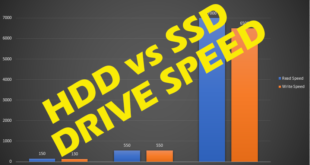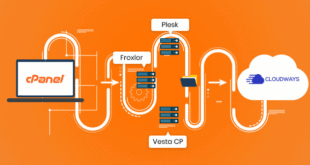Dedicated hosting is known for being one of the most powerful solutions available to webmasters, offering access to a private web server that is solely used to accommodate the needs of a single client. In contrast, most other types of hosting (i.e. – shared and VPS) only give you access to a partition (designated portion) of the server, so performance and reliability can vary depending on network activity. Even so, VPS and shared plans that operate in the cloud computing environment can be just as dependable as a dedicated server, and there are some cons associated with dedicated hosting. Consider the following pros and cons of dedicated hosting to determine whether this type of web hosting is ideal for your online endeavors:
Pros and Cons of Dedicated hosting:
Pros
- Increased Reliability and Redundancy – Since dedicated servers are not shared by a network of dozens or even hundreds of other webmasters, the risk of performance issues due to resource exhaustion is much lower. In addition, most providers work with datacenters that store backup servers and utilize backup/restore software to automatically transfer data from one server to another in the event of a hardware issue. Research has shown that dedicated plans are the most reliable, and are therefore preferred by most online business professionals.
- Better Performance – Since your websites will be able to pull bandwidth and disk space resources from an entire server they’ll be able to operate more smoothly. With dedicated hosting you don’t have to worry as much about downtime, slow page loading times, 404 not found errors, or hacking attacks.
- Greater Server Control – With most shared and VPS plans you have a limited amount of control over server administration tasks. With a dedicated pan you’ll be able to install whatever software you’d like on the server, modify how it handles scripts, and use it for whatever purpose you’d like, without having to contact a server administrator for assistance. In essence, a managed dedicated hosting solution gives you the freedom to perform maintenance, upgrades, and installs at will, yet also gives you access to IT staff that can handle these tasks for you.
- Higher Support Priority – Most hosting companies give their dedicated plan holders the highest priority in regard to service call waiting times. Web hosts know how valuable their dedicated clients are, and are therefore willing to provide more expeditious and helpful service to retain them and keep them satisfied.
Cons
- Higher Price – This is the most obvious con associated with dedicated hosting; it is more expensive than most other hosting types. However, you can sometimes acquire a plan without paying for a year of service in advance, so the startup cost may not be so excessive.
- Unmanaged Plans are not For Amateurs– If you don’t have a lot of experience and knowledge in maintaining a web server, you’ll want to opt for a fully managed dedicated solution. While unmanaged plans are less expensive, they require more maintenance, so you may actually save money by having someone else focus on the administrative tasks while you promote and progress your online business.
Conclusion
Ultimately, the benefits of renting a dedicated server far outweigh the disadvantages, especially if you have a budget that allows for more expensive hosting. Adversely, if you’re a novice webmaster who is yet to achieve measurable success, a shared or VPS plan may be a more affordable and ideal solution. Affiliate marketers, small business owners, and online service providers stand to gain the most from a dedicated plan because it will allow them to raise visitor/client satisfaction rates through enhanced site/page performance.
 Cheapest Linux VPS Home for Cheap Virtual Private Server
Cheapest Linux VPS Home for Cheap Virtual Private Server 


